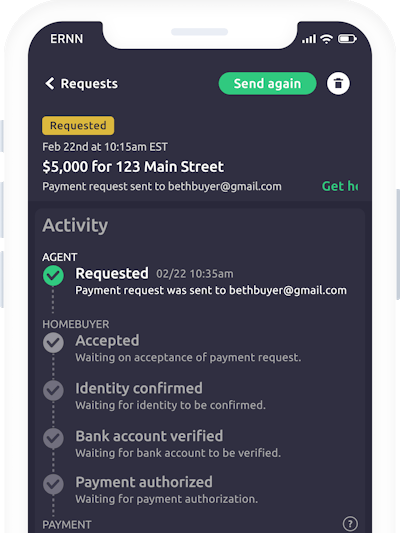What Is Earnest Money When Buying a Home?
Buying a home has many steps and pieces to the puzzle, so we want to make sure you are aware of them so you can best be prepared for the home buying process. Earnest money, or an earnest deposit, is used once you find a home to show the seller you are serious about buying their home.
What Is Earnest Money?
Earnest money, or a good faith deposit, is used by sellers to safeguard their interests. As the buyer, once you find the home you see yourself living in, you make an offer. Part of that offer typically includes an earnest deposit. Once an offer is accepted, the seller usually takes the home off the market until the sale closes, which generally takes a few weeks or months. The earnest deposit shows that your offer was serious because if you decided to pull out of the contract at the wrong time, your money could be awarded to the seller as collateral damage. Earnest money is essentially a deposit on the property you are interested in buying, and a written contract is needed to define the conditions of refunding the money.
Understanding Earnest Money
Your purchase agreement with the seller will highlight how the earnest money deposit is handled. The money is usually kept in an escrow account held by an escrow company, a title company or the seller's real estate agency.
Is Earnest Money the Same as a Down Payment?
No, earnest money is not your down payment. Your down payment is a separate transaction paid at the closing to secure your home’s financing. This is typically 10-20% of the purchase of the home. However, many buyers deposit their earnest money to secure the offer, and then use that money to go towards their down payment in the future. A great way to think of it: earnest money secures you an offer and a down payment secures your financing.
How Much Earnest Money Should a Homebuyer Pay?
The amount of money you offer for your earnest deposit varies depending on the market and the condition of the house, as well as your personal finances. If the home seems to be desirable or it is in a location prone to cash offers, you may want to offer a higher deposit amount than you would for a home that was in need of a lot of renovations. In most markets, your deposit will typically be between 1% and 3% of the home price. In a very competitive market in a place where there are multiple buyers, a deposit as high as 10% is common. Sellers can also ask for a specific amount for the earnest deposit to determine how serious the buyers are. Those that are serious will make the deposit and those that are not will find another home elsewhere. Your Realtor should be trained for this, so make sure you work with an experienced real estate agent so they can assess the property to help determine a good deposit range.
Reasons To Lose Earnest Money
Homebuyers can lose their earnest money after a deal has been broken. There are two scenarios that may result in you losing your good faith deposit:
Ignoring contract timelines or waiving contingencies. When purchasing a home, the contract usually has a timeline that buyers agree to. If you fail to complete any part of the transaction before an agreed upon date, it means you have breached your contract, which could result in you losing your good faith deposit. Waiving your financing and inspection contingencies put your good faith deposit at risk if your mortgage doesn’t go through or the home needs major renovations.
What Are The Conditions of Getting Earnest Money Refunded?
When you are buying a home, you do not lose the money if the deal fails on the seller's end. The buyer gets their earnest money back if the seller terminates the home sale with no prior valid reason. You also get your money refunded if the contract is canceled due to a contingency highlighted within the contract, such as if a home inspection fails, if the appraisal amount is lower than the sale price and the seller will not renegotiate, if the homebuyer cannot get financed, or if a buyer is unable to sell their current home before their new one closes. Contingencies are used to protect your deposit, so Understanding them is crucial. Make sure you and your Realtor are on the same page before signing on the dotted line.
Key Takeaways
- Earnest money is used initially when you sign a purchase agreement. Earnest money, or a good faith deposit, is generally 1% to 5% of the home’s sale price.
- When submitting your deposit, it is important to work with your Realtor and a reputable third party like an escrow company.
- Make sure you write up the terms of the contract and follow those terms. A breach of contract could result in a lost Earnest deposit on your end, or missing out on the sale of the home in your favor.





